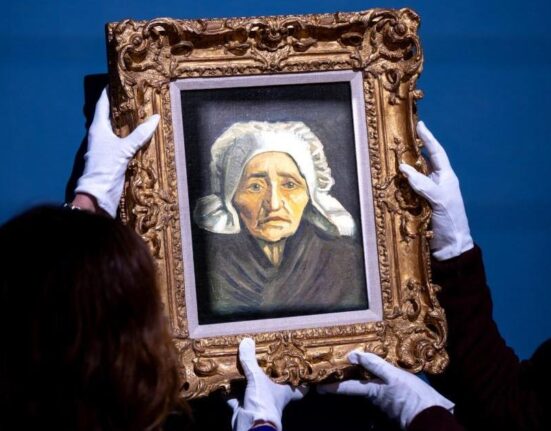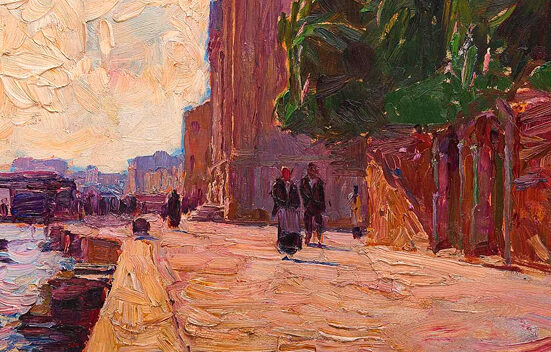Throughout history, music has played a crucial role in political movements, acting as a voice for the oppressed, and serving as a powerful medium for expression, resistance, and unity. The recent charity concert “Musicians for a European Future” held on the First Republic Square in Tbilisi on June 2 epitomizes this dynamic. The concert brought together a diverse group of popular and trending performers, including Bedford Falls, Kordz, Mechanical Rainbow, Nino Katamadze & Insight, Kvela, Ara, MokuMoku, Circus Mircus, Quemmekh, LOUDspeakers, and others, each contributing their voice to the cause of resisting the law “on transparency of foreign influence”.
By raising more than $100,000 (according to the organizers) to support individuals fined for participating in protests against the Foreign Influence Transparency Act, the event underscores the potent role of music in political activism. Friedrich Nietzsche famously said, “Without music, life would be a mistake,” highlighting the intrinsic value of music to human experience. In the context of political protest, music becomes a medium through which individuals and groups can articulate their dissent and aspirations.
Early Examples of Political Music
The roots of music as a form of political protest can be traced back to various historical periods. In the 18th century, during the American Revolution, songs like “Yankee Doodle” were used to mock British troops and bolster American morale. Similarly, in France, revolutionary songs such as “La Marseillaise” galvanized citizens during the French Revolution, becoming anthems of resistance and later national identity.
In the 19th century, abolitionist songs in the United States, like “Follow the Drinking Gourd,” provided not only encouragement but also practical information for enslaved people seeking freedom via the Underground Railroad. These songs were covertly political, embedding messages of hope and resistance within their lyrics.
The 20th Century: A Century of Protest Songs
The 20th century saw an explosion of music as a tool for political activism. The labor movement in the early 1900s utilized folk songs to rally workers. “Solidarity Forever,” penned by Ralph Chaplin in 1915, became an anthem for the American labor movement, encapsulating the struggles and hopes of workers striving for better conditions.
During the civil rights movement of the 1950s and 1960s, music was integral to the movement’s identity and momentum.Songs like “We Shall Overcome” and “A Change is Gonna Come” by Sam Cooke provided both comfort and motivation, helping to sustain activists through arduous struggles. These songs transcended mere entertainment, embedding themselves into the very fabric of the movement.
The Vietnam War era brought forth a new wave of protest music. Artists like Bob Dylan, Joan Baez, and later, John Lennon, with his iconic “Imagine,” captured the anti-war sentiment and galvanized public opinion. Woodstock, the 1969 music festival, epitomized this era, blending music and political expression into a landmark event symbolizing peace, love, and anti-establishment ideals.
Music and Political Change in Recent History
In more recent history, concerts and musical events have continued to play a significant role in political movements. The 1980s saw the rise of benefit concerts like Live Aid in 1985, organized by Bob Geldof and Midge Ure to raise funds for famine relief in Ethiopia. While primarily a humanitarian effort, Live Aid highlighted the potential of music to mobilize global audiences for social causes, combining entertainment with activism on an unprecedented scale.
The fall of the Berlin Wall in 1989 was accompanied by a significant cultural shift, with musicians like David Hasselhoff performing “Looking for Freedom” atop the wall, symbolizing the triumph of liberty over oppression. This event underscored the role of music in marking political milestones and fostering a sense of unity and hope.
The Role of Music in Contemporary Protests
The 21st century has continued to see music at the forefront of political protests. In 2003, musicians played a pivotal role in the anti-Iraq War protests, with bands like Green Day and their song “American Idiot” capturing the anti-war sentiment. In 2011, the Arab Spring saw young people using music and social media to organize and express their aspirations for democracy and reform.
The “Musicians for a European Future” concert in Tbilisi is part of this continuum. Like the protest songs of the past, it uses music to rally support and raise funds for a political cause. The participation of diverse bands and artists in this concert underscores music’s ability to transcend individual differences and unite people around common ideals.
Music as a Form of Protest
The relationship between art and political agency is a central theme in the philosophy of aesthetics. Theorists like Herbert Marcuse and Jacques Rancière have examined how art can disrupt the status quo and inspire political action. Marcuse argued that art has the potential to reveal alternative realities and possibilities, thus challenging dominant ideologies. Rancière, meanwhile, posited that art can reconfigure the “distribution of the sensible,” altering perceptions and opening up new spaces for political engagement.
Music’s emotional resonance can amplify the impact of political messages, making abstract and often complex issues more accessible and compelling to the general public. Philosophers like John Dewey and Martha Nussbaum have explored the idea that art, including music, plays a crucial role in moral and ethical discourse. Dewey viewed art as a means of communication that can evoke empathy and understanding, thereby fostering moral development. Nussbaum, on the other hand, emphasizes the narrative aspect of art, which can reveal the complexity of human experience and ethical dilemmas.
In Tbilisi, the charity concert “For a European Future,” aimed at opposing the restriction of civil liberties, the suppression of dissent, and the expulsion of non-profit organizations that displease the establishment, made a powerful statement. By participating in this concert, musicians not only voiced their disapproval but also mobilized their fan bases, creating a ripple effect of awareness and engagement.
Concerts as Platforms for Unity
Music has a unique capacity to forge connections among individuals, fostering a sense of community and shared identity. Philosopher Jean-Luc Nancy discusses the concept of “being-with,” emphasizing the fundamental social nature of human existence. Music, particularly in a live concert setting, embodies this concept by bringing people together in a collective experience.
The Tbilisi concert on the First Republic Square exemplifies how music events can transcend mere performance, becoming acts of solidarity and resistance. In this case, the concert was more than a fundraiser; it was a physical manifestation of collective opposition to an unjust law, providing a safe space for like-minded individuals to connect and support one another.
The collective experience of live music can reinforce a sense of identity and belonging among participants. The shared act of singing along, dancing, and simply being present in a space dedicated to a common cause can strengthen communal bonds and reinforce the participants’ commitment to their ideals. This unity is crucial, especially in politically turbulent times, as it provides a morale boost and a reminder that individuals are not alone in their struggles.
The “Musicians for a European Future” concert in Tbilisi illustrates how music can act as a catalyst for protest, unity, and action, assembling communities around shared ideals and providing tangible support for activists. In a broader context, such events reaffirm the vital role of the arts in societal change, highlighting how creativity and solidarity can converge to challenge injustices and advocate for a more equitable future.
By Ivan Nechaev




